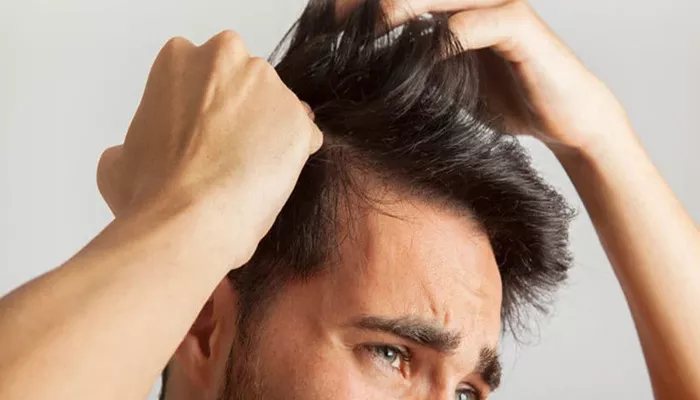Hair loss is a common concern that affects millions of people worldwide, regardless of age or gender. While losing a few strands daily is normal, dramatic hair loss can be distressing and may indicate underlying health issues. The causes of excessive hair shedding or thinning are varied, ranging from genetic factors to medical conditions and lifestyle influences. Understanding these triggers is essential for proper diagnosis and treatment.
Genetic Predisposition and Hormonal Influences
One of the most prevalent causes of dramatic hair loss is genetics, particularly in cases of androgenetic alopecia, commonly known as male or female pattern baldness. This condition is driven by dihydrotestosterone (DHT), a hormone derived from testosterone. In individuals with a genetic sensitivity to DHT, hair follicles gradually shrink, leading to thinner, shorter hair strands and eventual cessation of growth.
Men with this condition typically experience a receding hairline and thinning at the crown, while women notice diffuse thinning across the scalp. Unlike men, women rarely go completely bald, but the hair loss can still be significant. Hormonal fluctuations, such as those occurring during pregnancy, menopause, or due to polycystic ovary syndrome (PCOS), can also accelerate hair shedding. Postpartum hair loss, for instance, is a temporary but dramatic shedding phase caused by the sudden drop in estrogen levels after childbirth.
Medical Conditions and Autoimmune Disorders
Several medical conditions can contribute to sudden or severe hair loss. Thyroid disorders, including hypothyroidism and hyperthyroidism, disrupt the normal hair growth cycle by affecting hormone production. An underactive or overactive thyroid can lead to brittle hair, excessive shedding, and even patchy hair loss.
Alopecia areata is an autoimmune disorder where the immune system mistakenly attacks hair follicles, leading to sudden, round patches of hair loss. In severe cases, it can progress to alopecia totalis (complete scalp hair loss) or alopecia universalis (loss of all body hair). While the exact cause remains unclear, genetic and environmental factors are believed to play a role.
Chronic illnesses such as lupus, diabetes, and iron-deficiency anemia can also trigger hair loss. Lupus causes inflammation that may damage hair follicles, while diabetes affects circulation, potentially reducing nutrient supply to the scalp. Iron deficiency, particularly in women, is a well-known contributor to hair thinning, as iron is crucial for healthy hair growth.
Medications and Medical Treatments
Certain medications have hair loss as a known side effect. Chemotherapy drugs are infamous for causing dramatic hair loss because they target rapidly dividing cells, including hair follicles. Fortunately, this type of hair loss is usually temporary, and hair typically regrows after treatment ends.
Other medications that may contribute to hair shedding include blood thinners, beta-blockers, retinoids, and some antidepressants. Hormonal medications, such as birth control pills or hormone replacement therapy, can also trigger hair loss in susceptible individuals, especially if there is a family history of androgenetic alopecia.
Stress and Trauma to the Body
Physical or emotional stress can lead to a condition called telogen effluvium, where a significant number of hair follicles prematurely enter the resting (telogen) phase and subsequently fall out. This type of hair loss usually occurs several months after a stressful event, such as major surgery, a severe illness, or extreme emotional distress.
Trichotillomania, a psychological disorder characterized by the compulsive urge to pull out one’s hair, can also lead to noticeable hair loss. This condition often requires behavioral therapy and psychological support to address the underlying triggers.
Nutritional Deficiencies and Poor Diet
The health of your hair is closely tied to your nutritional intake. Deficiencies in essential vitamins and minerals can weaken hair structure and disrupt growth cycles. Key nutrients for healthy hair include:
- Iron – Necessary for oxygen transport to hair follicles.
- Zinc – Supports hair tissue growth and repair.
- Biotin (Vitamin B7) – Aids in keratin production.
- Vitamin D – Helps stimulate hair follicles.
- Protein – Hair is primarily made of keratin, a type of protein.
Crash diets, eating disorders, or highly restrictive diets can deprive the body of these vital nutrients, leading to increased hair shedding. A balanced diet rich in lean proteins, leafy greens, nuts, and whole grains is crucial for maintaining strong, healthy hair.
Environmental and Lifestyle Factors
External factors such as excessive heat styling, chemical treatments, and harsh hair products can damage hair over time, leading to breakage and thinning. Tight hairstyles like braids, ponytails, or extensions can cause traction alopecia, a form of hair loss resulting from prolonged tension on the hair roots.
Pollution, UV exposure, and hard water can also weaken hair by stripping moisture and causing oxidative stress. Protecting hair with gentle care routines, minimizing heat tools, and using sulfate-free shampoos can help mitigate damage.
Infections and Scalp Conditions
Fungal infections like tinea capitis (scalp ringworm) can invade hair shafts, leading to patchy hair loss, redness, and scaling. Bacterial infections of the scalp may also contribute to inflammation and hair shedding if left untreated.
Conditions like seborrheic dermatitis and psoriasis cause scalp irritation, flaking, and sometimes temporary hair loss due to excessive scratching or inflammation. Proper medical treatment can help manage these conditions and reduce hair loss.
Age and Natural Hair Thinning
As people age, hair naturally becomes thinner and grows more slowly. The hair growth cycle shortens, and follicles produce finer, less pigmented strands. While this is a normal part of aging, some individuals experience more pronounced thinning due to genetic factors or cumulative damage over the years.
Conclusion
Dramatic hair loss can stem from a wide range of causes, including genetics, medical conditions, medications, stress, nutritional deficiencies, and environmental factors. Identifying the underlying trigger is crucial for effective treatment. If you experience sudden or severe hair loss, consulting a dermatologist or healthcare provider can help determine the cause and guide appropriate interventions. Whether through medical treatments, lifestyle adjustments, or specialized hair care, addressing the root issue can restore hair health and confidence.
Related topics:
- Is Hormonal Hair Loss Reversible
- Why Does My Hair Fall Out After Washing?
- How to Stop Hair Fall After Permanent Straightening


